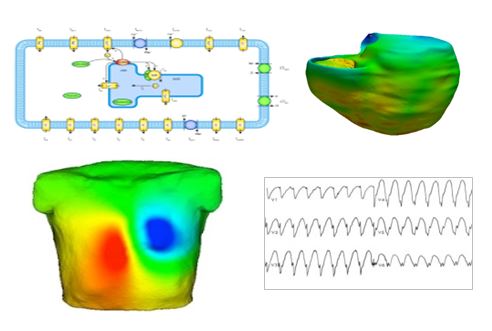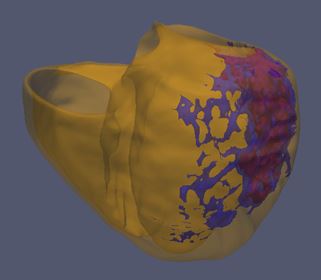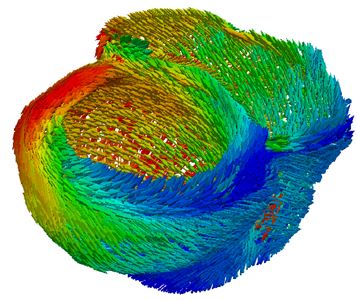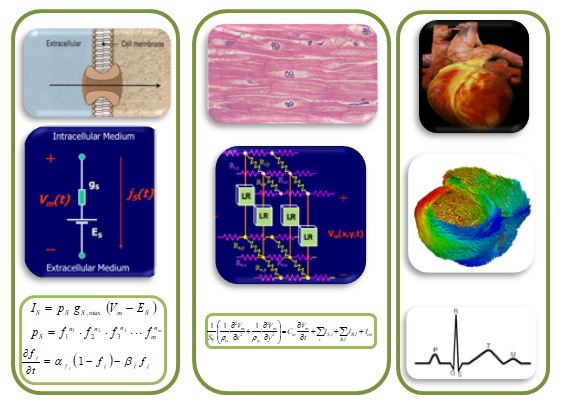Computational Technologies for the Optimisation of Personalised Treatments for Atrial and Ventricular Pathologies
Cardiac pathologies have a major social and economic impact in Spain in terms of morbidity, mortality and cost for the healthcare system. Sudden cardiac death is associated with cardiac arrhythmias, often derived from ventricular pathologies, such as myocardial infarction or heart failure. Atrial fibrillation is also one of the most common arrhythmias with a high impact on Spanish health costs. The ability to predict, prevent and treat these pathologies still remains a major scientific challenge. Many treatments exist, but the choice of a treatment is difficult and their efficacy is limited because each patient has a unique disease profile. In the last years, computational models of the electrical behavior of the heart have emerged as a useful tool for better understanding the biophysical principles of cardiac electrophysiology, and thus are beginning to be used to improve cardiac treatment.
The main objective of this project is to build personalised multi-scale models of cardiac disease, mainly atrial fibrillation, infarction, and heart failure to optimise their therapy using computer simulations. We will develop, clinically-validate and use personalised computer-based models to investigate multi-scale mechanisms from the ionic to the whole-organ level, underlying anti-arrhythmic treatment.
To do this, we will improve and expand state-of-the-art computational heart models and develop methods to personalise and validate these models to reflect the patient-specific disease conditions. The clinician partners of the project will provide patients’ data based on images and electrical cardiac signals to be used in the personalisation of the models and their validation. Semi-automatic methodologies will be designed and used for the models personalisation. Computational tools will be also optimised to assure simulation efficiency. The virtual personalised hearts will be used to study how arrhythmias develop and persist in these predefined groups of patients, as well as the evolution of the treatment outcomes over time. Cardiac therapies will be optimised, with special emphasis on electrical treatments, such as ablation and cardiac resynchronization, to guide clinicians.
The project will provide a clinical proof-of-concept of personalised medicine using multi-scale computational cardiac models, and lay the groundwork for future adoption of the tools. The results will suppose an important progress in the diagnosis, prevention and treatment of cardiac arrhythmias: the results of this project could improve patients’ treatment outcomes.
Under execution








